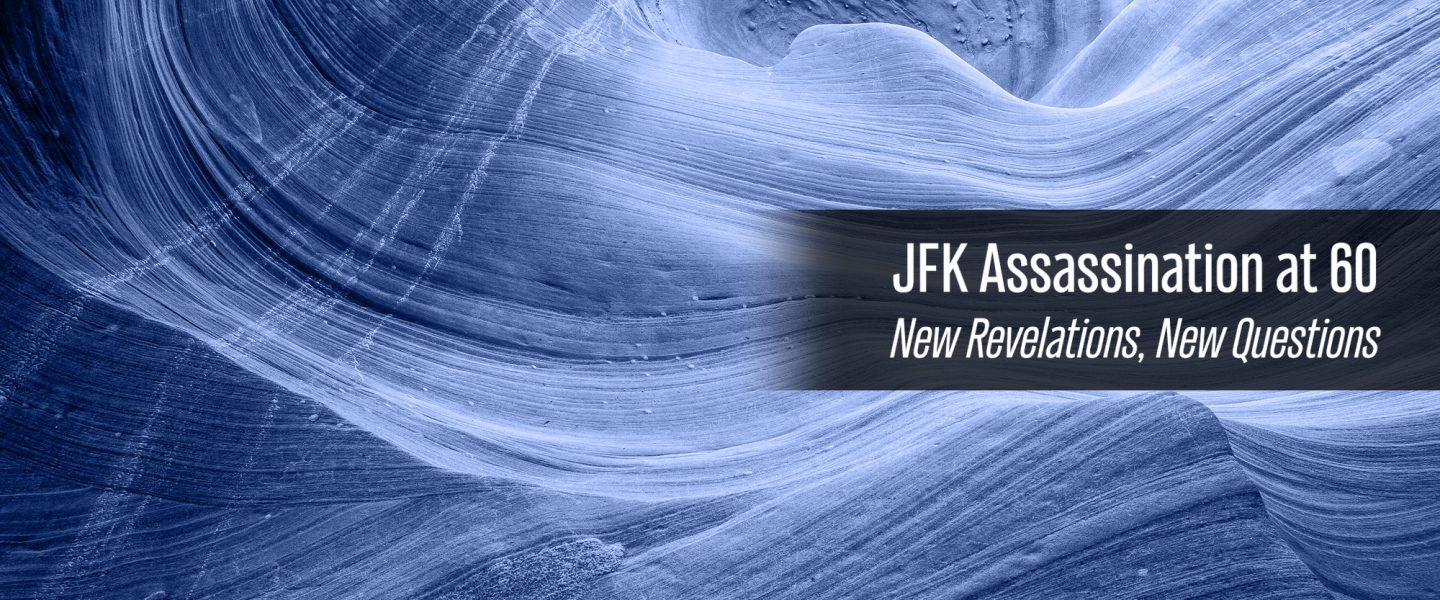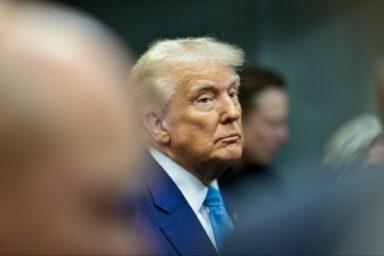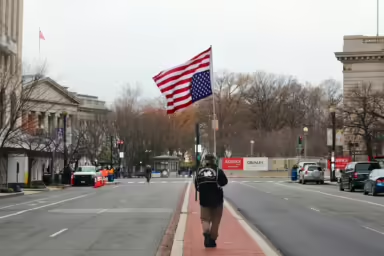What difference did President Kennedy’s assassination make — then and now?
|
Listen To This Story
|
Given the inexhaustible supply of crises facing America and the world today, it is easy to believe that escalating political violence and, ultimately, complete societal breakdown, are on the horizon.
In fact, to younger generations in particular, it might seem that the situation has never been more precarious.
However, tens of millions of Americans have already gone through a comparable era of converging threats. In the four decades following World War II, it was the shadow of nuclear annihilation that fed people’s fears the way global warming does today.
And none of the recent domestic conflicts have eclipsed America’s no-holds-barred battle over its legacy of slavery, and the persistent brutality of systemic racism. Indeed, during the civil rights era, political violence was an almost daily occurrence — from high-level assassinations to bombings and the murders of those who tried to fight for equality.
In that perilous and often bleak time, Americans elected a young man representing hope and a vision for a country in which everybody had the opportunity to prosper. Unfortunately, John F. Kennedy’s life was cut short before his plans could come to fruition, and the country was irrevocably changed as a result. However, the mythos of JFK persists… not only because of legitimate and fact-based questions surrounding his murder, but also because of what Americans believed could have been.
JFK’s death — along with those of Robert Kennedy, Martin Luther King, and Malcolm X in the same decade — profoundly altered the course of history.
Moreover, a peaceful transfer of power to the public’s chosen leaders is the foundation of any democracy. When the mere possibility exists that this did not occur, it is urgent we come to terms with the facts of the case.
***
Up to the moment Kennedy was killed, his presidency was on a uniquely transformative course. This fact has been obscured by highly selective and biased presentations of Kennedy’s thinking and actions by narrators, including some leading establishment historians, who seem to owe their comfortable and influential positions to toeing the establishment line.
Consider: Kennedy, mindful of Southern domination in Congress and the Electoral College, moved cautiously but steadily on civil rights for African Americans. Just weeks before the 1960 election, Martin Luther King Jr. had been arrested and jailed in Georgia; candidate Kennedy telephoned him to voice support, and his brother Robert Kennedy contacted the judge to secure King’s release.
The Kennedy administration sent Federal marshals to protect “Freedom Riders” protesting segregation on interstate buses in the South, and in 1962 President Kennedy ordered Federal troops to the University of Mississippi to enforce the right of a Black man, James Meredith, to matriculate in the face of deadly riots.
He nationalized the Alabama National Guard to similarly enforce African American access to the University of Alabama in June 1963, also making a sharply-worded speech on live TV to define the civil rights crisis as a moral issue.
It was a measure of the murderousness of the resistance to civil rights that within hours of this speech, a white segregationist shot and killed NAACP activist Medgar Evers outside his home in Mississippi.
Some prominent military figures — part of the military-industrial complex that the preceding president, Dwight D. Eisenhower, warned about in his farewell address — were out-and-out racists who were enraged by Kennedy’s policies.
One, Gen. Edwin Walker, commander of an infantry division stationed in West Germany, had been forced out by Kennedy over his politicization of his troops, and had returned to Dallas, of all places, where he began both a run for governor of Texas and a national campaign against almost everything Kennedy stood for.
Walker, together with FBI Director J. Edgar Hoover and many others, believed the civil rights movement to be riddled with communists, and registered growing alarm at where Kennedy was taking the country.
Privilege’s alarm at Kennedy covered so many fronts.
While his economic policies featured a substantial cut in tax rates across all brackets, he also pushed policies explicitly aimed at benefiting ordinary folks: an increase in the minimum wage, expansion of unemployment relief, and a rise in Social Security benefits.
Furthermore, he sought to constrain the advantages of wealth — the power of money — by countering monopolistic price hikes in commodities like steel; proposing to reduce the lucrative “depletion allowance” with which oil corporations significantly lessened their tax liability; and contemplating the thorough reform of government procurement, especially defense contracts.
In what would be his final year in office, after the near-disaster of the Cuban Missile Crisis, he angered top generals by moving to dampen Cold War tensions with a ringing speech in favor of peace and a landmark treaty with the Soviet Union to forego above-ground testing of nuclear weapons.
And Vietnam. Debates have raged about whether Kennedy would have launched a full-scale American war in Vietnam as his successor Lyndon Johnson did — but it’s indisputable that he was extremely cautious about major military engagement there: “In the final analysis, it is their war. They are the ones who have to win it or lose it.” And evidence has emerged that Kennedy was in fact intending to withdraw US troops after the upcoming 1964 election. Is it conceivable that he would have committed half a million troops there, as Johnson did? Surely his death made a difference.
***
Of course, Kennedy the man and politician was far from perfect.
The vast store of memos and remembrances of those who worked closely with him show that he was a complex figure with many faults: a pleasure-seeking heir to a family fortune — but also a highly talented leader with a long-standing personal interest in the underdog, and a healthy wariness of the corruption and self-interest baked into so much public policy.
As his own words attest, the reformist side of Kennedy’s consciousness only grew with time, with the president increasingly aspiring to society-altering actions just as he was cut down by gunfire.
If Kennedy was killed for reasons such as these — and not for some never-explained motive at the hand of a troubled individual — then we Americans have to reckon with the anti-democratic elements within the establishment to block any positive change. And equally, with the determination of powerful institutions to undermine serious inquiry into what actually happened.
We’re doing this series because we believe that what happened on November 22, 1963 was prologue to what is happening now. We must understand those often covert forces that continue to shape our world.
About the JFK Assassination Series
In our next installment, we expose evidence that, one week after the assassination, two of the country’s most powerful men knew that President Kennedy was not shot by a lone gunman.
This series was inspired by an ongoing project of WhoWhatWhy Founder and Editor-in-Chief Russ Baker to produce a definitive, meticulous, book-length investigation of Kennedy’s death.
To read the other articles in this series, go here.
If you have information to bring to our attention about any aspect of the JFK assassination — or are with the media and interested in covering or reproducing our work or inviting Mr. Baker to appear on a program — please click here.
If you would like to be on a mailing list to receive news of the book, click here.





